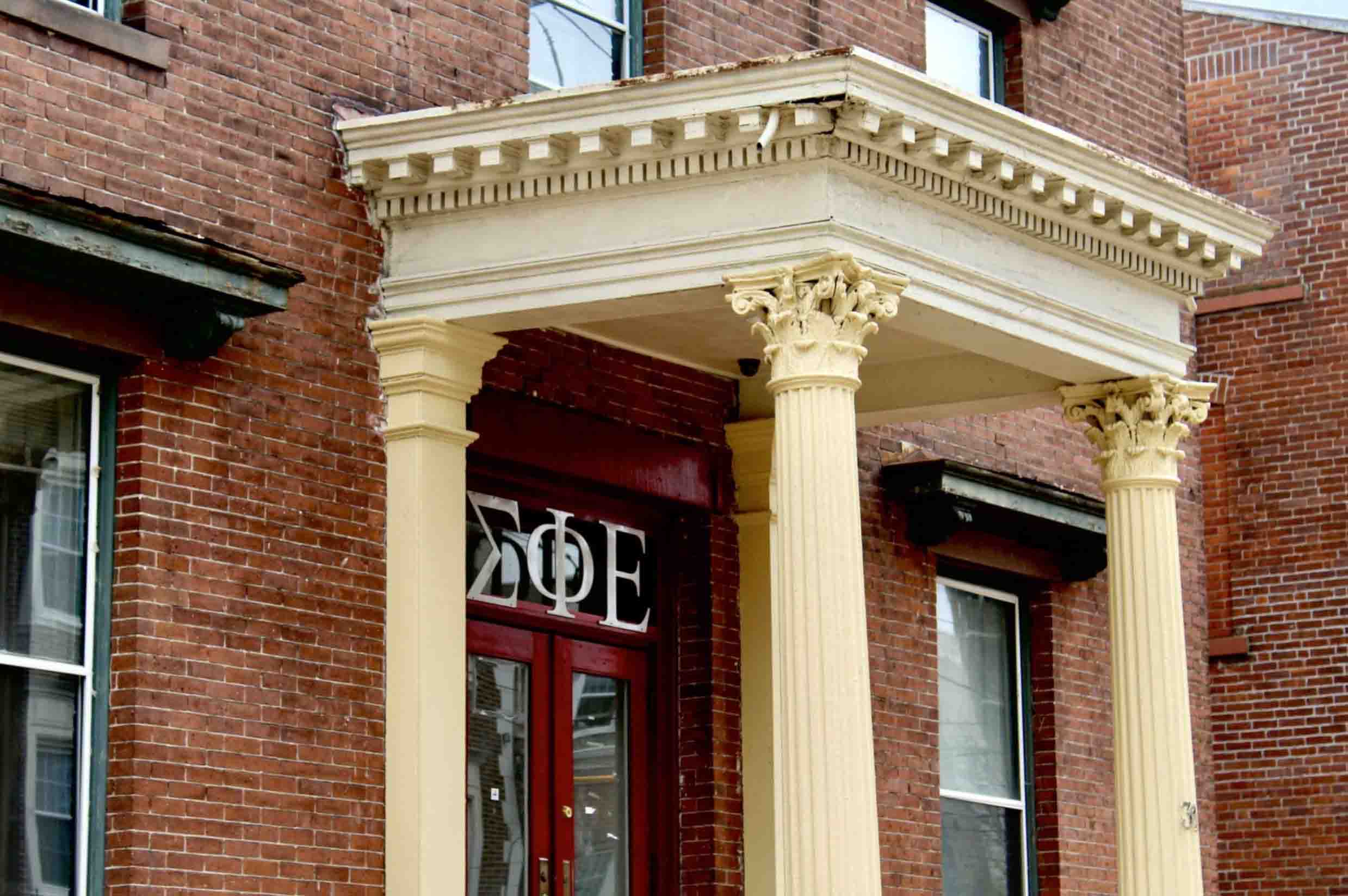
All national fraternities affiliated with the North American Interfraternity Conference will be prohibited from having hard alcohol in their chapter facilities and at their events starting Sept. 1, 2019. The ban will affect eight fraternities at Yale: Alpha Delta Phi, Alpha Epsilon Pi, Chi Psi, Delta Kappa Epsilon, Sigma Chi, Sigma Nu, Sigma Phi Epsilon and Zeta Psi.
The conference, which governs 66 fraternities in North America, approved the policy at its annual meeting on Aug. 27. According to the new rule, each conference member fraternity will be prohibited from having alcohol products above 15 percent alcohol by volume in any chapter facility or at any chapter event, except when served by a licensed third-party vendor.
“At their core, fraternities are about brotherhood, personal development and providing a community of support. Alcohol abuse and its serious consequences endanger this very purpose,” said Judson Horras, North American Interfraternity Conference president and CEO, in the press release announcing the ban. “This action shows fraternities’ clear commitment and leadership to further their focus on the safety of members and all in our communities.”
Heather Kirk, chief communication officer of the North American Interfraternity Conference, did not respond to a request for comment on how the ban will be enforced.
The conference’s ban comes one year after SigEp’s national organization announced a policy prohibiting all types of alcohol from common spaces by Aug. 1, 2018 and requiring that all chapter houses become substance-free by Aug. 1, 2020.
In an email to the News, Associate Vice President of Student Life Burgwell Howard said the new policies for SigEp and other conference-affiliated fraternities will cause a “significant cultural shift for many of these groups.” He emphasized that fraternities may still contract restaurants or bars to serve alcohol, which provides some assurance that alcohol will be distributed responsibly.
“This is obviously a great concern for the national fraternities who have a concern about insurance rates and risk exposure when dealing with college-age students,” Howard said.
Despite the new policy, most of Yale’s fraternities are technically already bound by stringent rules regulating the presence of alcohol at social events. All fraternity chapters at Yale, excluding ADPhi, are members of the Fraternal Information and Programming Group, and must adhere to the group’s risk-management policies. According to FIPG guidelines, member fraternities may only serve alcohol at parties in two approved ways: hiring a third-party vendor or encouraging attendees to bring their own alcohol — both of which shift liability for the alcohol away from fraternities.
In practice, these guidelines are usually enforced when a fraternity faces a lawsuit, not to routinely police events hosted at chapter houses. According to a 2014 article in The Atlantic, most fraternities’ insurance claims respond to alcohol-fueled incidents.
David Easlick, a former executive director of Delta Kappa Epsilon’s national organization, said he suspects the ban comes in response to a “huge potential increase in insurance premiums” for fraternities.
In SigEp’s press release announcing the ban last year, national representatives said they adopted the new policy in response to a 46 percent increase in liability insurance premiums since 2014. In addition, nearly 50 SigEp chapters have closed in the past 10 years due to “risky behavior fueled by alcohol consumption.” The fraternity pays 900 percent more in premiums than the average sorority, according to SigEp’s press release. All types of alcohol are already banned from chapter houses of national sororities.
A representative of Yale’s SigEp chapter, who spoke on the condition of anonymity, said his fraternity is “working hard to meet the substance-free guidelines provided by the SigEp National Chapter.” SigNu President Jake Leffew ’19 referred questions about the ban to his national organization. Leadership of other fraternity chapters at Yale did not respond to requests for comment.
Several students interviewed by the News expressed doubt that the ban will be implemented effectively.
“It’s college. … They can ban hard alcohol, but people will drink anyway,” Derek Chen ’22 said. “If they’re trying to prevent people from drinking hard liquor, then this probably won’t make a difference.”
And Brienna Carter ’21 said that students who wish to drink hard alcohol will still find a way to do so when they’re out.
Alice Park | alice.park@yale.edu







